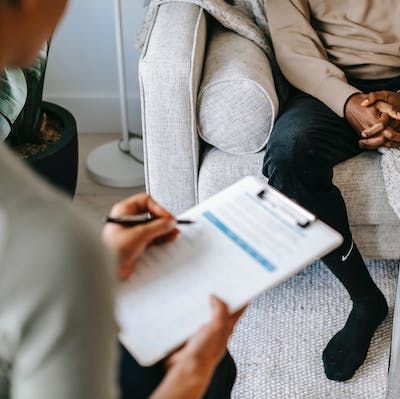Video
Impact of COVID-19 Pandemic on Patients With Plaque Psoriasis
Author(s):
Dr Jerry Bagel and physician assistant Alexa Hetzel comment on the impact of COVID-19 pandemic on patients with plaque psoriasis.
Jerry Bagel, MD, MS: One of the final questions is that we’re still with COVID-19. We’ve been together through this whole process.
Alexa Hetzel, MS, PA-C: We have.
Jerry Bagel, MD, MS: This has been a whole process of 2 ½ years of COVID-19. We’ve had to shut down our practice. We had to go to telemedicine and we’re back. What do you think about patients with COVID-19 and psoriasis, and biologics?
Alexa Hetzel, MS, PA-C: In the beginning, it scared us and made us nervous, but it also scared the patients because we have to tell them that we’re lowering their immune system slightly. We are not giving them chemotherapy, but we are lowering their immune system. What we’ve learned is that their immune system is actually overactive. If we brought them down to a normal inflammatory level, those patients actually did better than if they stopped their biologic and we’re in this inflammatory cascade.
Jerry Bagel, MD, MS: We looked at our patient population as you know and we found that unfortunately, more patients with COVID-19 that were getting phototherapy died than on biologics. We have a lot more people on biologics. What happened? Well, they started utilizing biologics and testing biologics in people with COVID-19 because biologics decreased the inflammation in people. They decreased what was called, “the COVID storm,” or the biologic storm of uplifting all the inflammation; all of the TNF [tumor necrosis factor] that was making people sick. By going on a biologic agent, we found that people who were on biologics did better during COVID-19 than the people that were not on biologics. That was a real big surprise to us. I agree with you; we were scared in the beginning. We were like, what do we do here? A lot more people went into phototherapy as opposed to a biologic. A lot of people stopped their biologics and got worse. That was a problem too and I can’t blame them, but I wish they had called and we could have told them to stick with it.
Alexa Hetzel, MS, PA-C: Telehealth made it a little easier for us to connect with them too.
Jerry Bagel, MD, MS: Telehealth for psoriasis wasn’t so bad, if they were already an existing patient.
Alexa Hetzel, MS, PA-C: Especially if we already knew them and what their treatment was, and if they were doing OK.
Jerry Bagel, MD, MS: It‘s just that the hiccups with telemedicine was always a problem. You would lose the connection. They wouldn’t be there on time and that was a real mess.
Alexa Hetzel, MS, PA-C: Or where’s your elbow when it’s up at the ceiling?
Transcript Edited for Clarity




